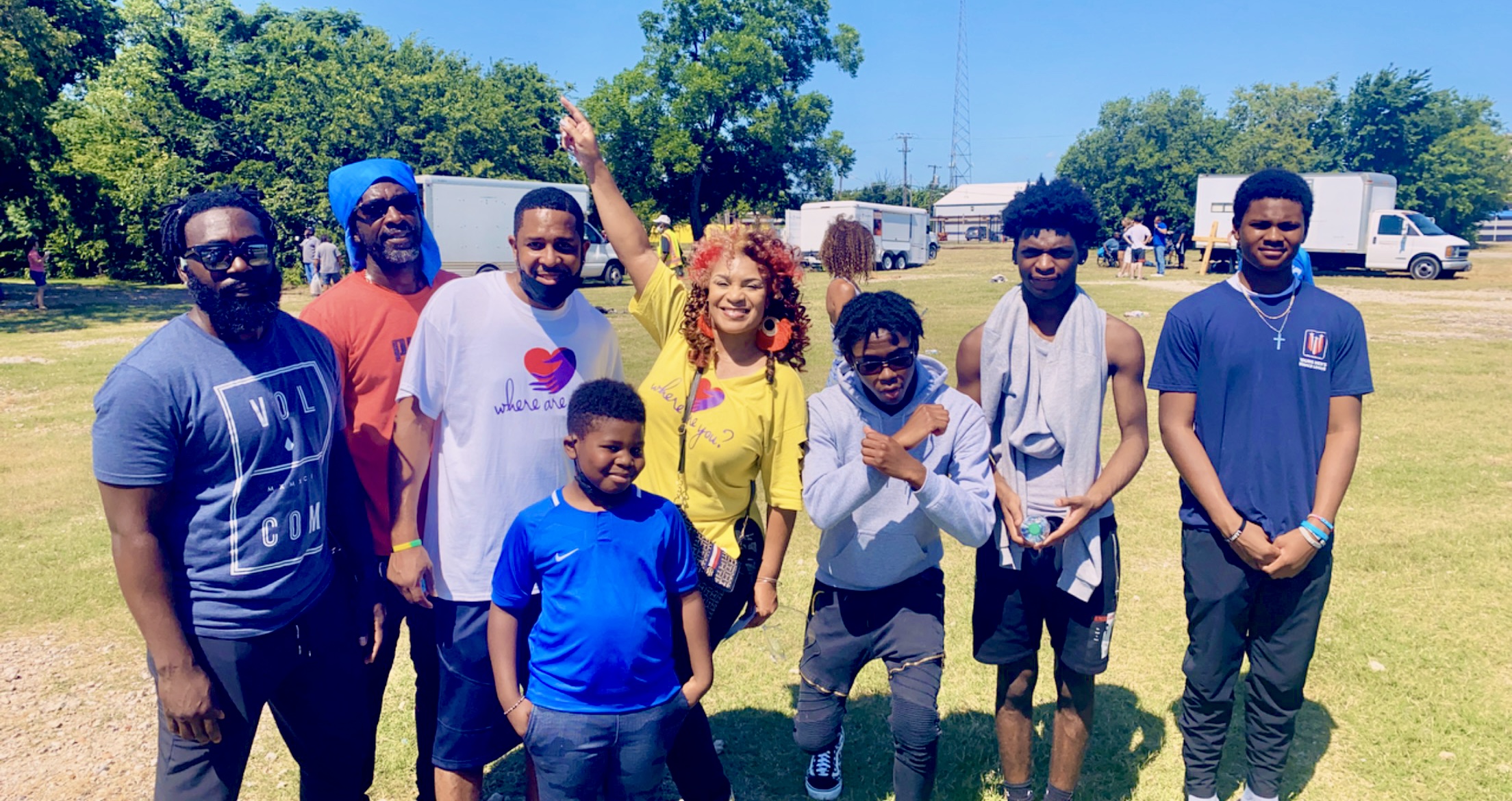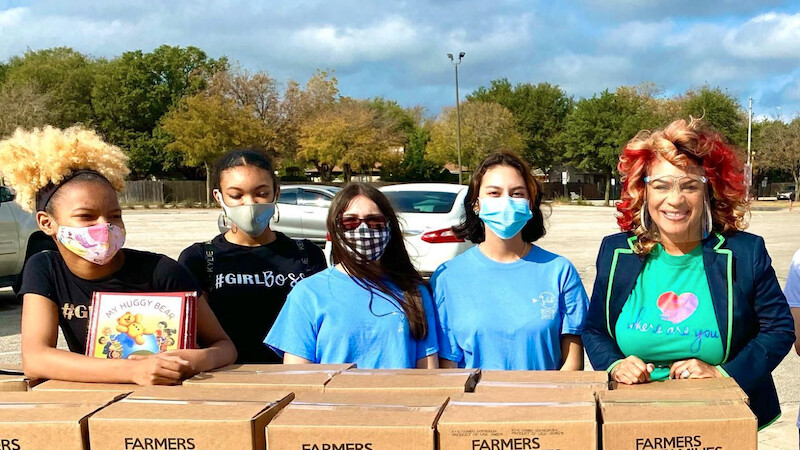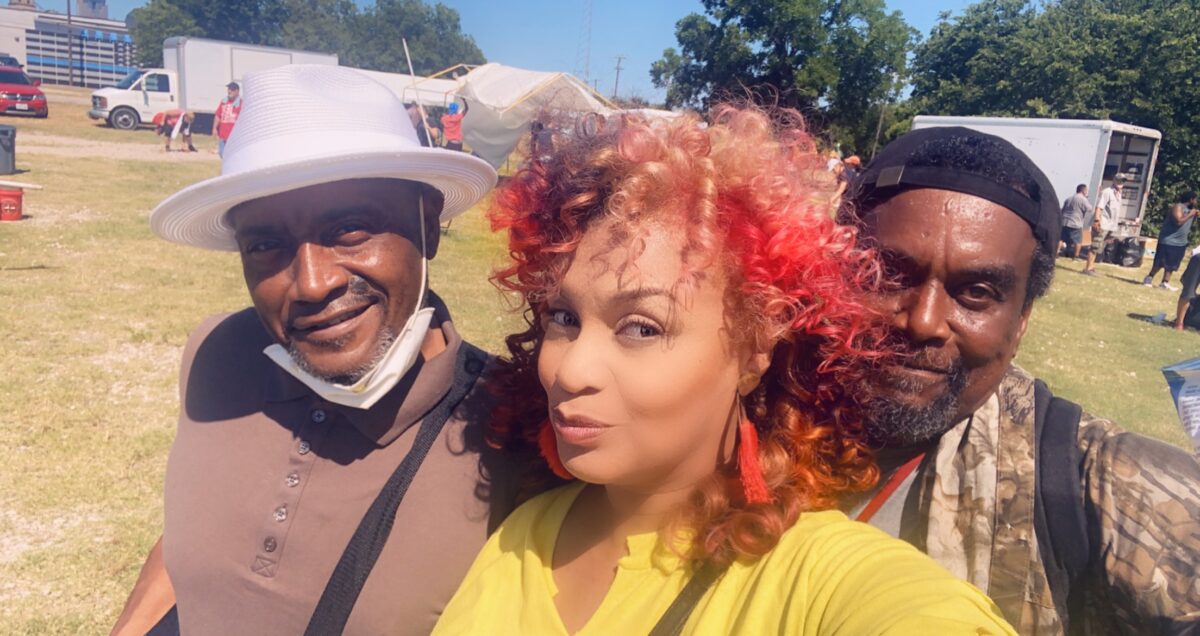When LeTitia Owens relocated to Atlanta, she thought it was to pursue a singing career. Instead, she unexpectedly became homeless and began living out of her car. “Because I was in my car, I had a certain calm about it,” Owens said. “I knew I could lock my car doors at night and feel secure but I would see families on the street and wonder how can they deal mentally with not having a secure place to sleep at night?”
The experience, which lasted three months, opened her eyes to a world she hadn’t previously noticed.
“I’m looking out of the windows of my car, seeing people pushing baskets and carrying a backpack or a trash bag full of their belongings,” Owens said in an interview. “I wondered what they were doing out at 3 and 4 in the morning not realizing that I was in the same situation except I had a car to sleep in.”
The singer-songwriter began cultivating relationships with other homeless people in order to learn how to survive.
“I felt that as long as my things were with me in my car, I didn’t mentally feel like I was in a negative situation but of course I was trying to figure out what my day-to-day was going to look like,” she said.
When it came time to shower, Owens disclosed that she would befriend people and ask to use their bathroom.
“Once they let me in, I would tell them that I needed to take a shower or I would go to the YMCA or different gyms,” she said. “I found ways to make a shower happen but it’s a tough situation to be in overall.”
Eventually, a friend offered her a couch to sleep on and from there she moved back to Dallas for a job.”
“It’s an extreme measure to move into a shelter and it’s usually because they’re not so nice,” she said. “They don’t have a warm feeling. You don’t feel at home when you’re at a shelter with a bunch of people who are strangers.”
Owens was so touched by the unsheltered people she met on the streets that once she was back on her feet, she founded a nonprofit 501(3)(c) called Where Are You? Outreach (WAYO). Through WAYO, Owens invites the unsheltered to events she hosts twice a month where information about finding food, shelter, bathrooms and fuel are shared.
“We also provide food, clothing, toiletry items and a lot of my homeless men are shoeless, so I get their shoe size and provide them with shoes,” she said.
Last year, the singer-songwriter was nominated by Councilman Casey Thomas II to serve as vice chair on the Citizen Homeless Commission for the City of Dallas.
“It is a volunteer position that takes up about six hours a week,” she said. “You just have to have a heart for those that you’re serving. We have different Zoom calls that we get together on sometimes two or three times a month.”
On August 21, Owens will be giving away housing vouchers for temporary housing in apartments and hotels along with Dallas Councilman Tennell Atkins from District 8.
Recently, according to media reports, the city of Dallas received $21 million in federal funds through the American Rescue Plan Act, and Owens is applying for funding from that pool to acquire a building that would create housing exclusively for African American men who make up the largest homelessness demographic nationwide.
“If we could help homeless Black men, we could help lower the number of homeless people overall,” she said. “It’s usually having to do with getting jobs and just having an income to provide for themselves.”

About 30 percent of homeless black men are military veterans, according to the U.S. Department of Veteran Affairs.
“One of the things that the Citizen Homeless Commission is able to do is assist with recommending who should receive funding because there are so many areas that don’t necessarily get the support they need,” Owens said.
The WAYO office is currently at 5057 Keller Springs Road in Addison but the headquarters will soon be relocating to a larger space in the Jacksonville area so that Owens can offer more services on site to people who are experiencing homelessness.
“I want to be able to provide resources on a regular basis because right now I have to do pop-up shops at different organizations, parking lots and churches,” she added.
To donate, visit the Where are You? Outreach for Homeless website (WhereAreYouOutreach.org).
“I rent chairs, tables, provide food and if I’m not able to get these resources from my sponsors, then I have to buy all those things,” she said. “It adds up.”

Juliette Fairley is a graduate of Columbia University’s Graduate School of Journalism. Born in Chateauroux, France, and raised outside of Lackland Air Force Base in Texas, Juliette is a well-adjusted military brat who now lives in Manhattan. She has written for The New York Times, The Wall Street Journal, TheStreet, Time magazine, the Chicago City Wire, the Austin-American Statesman, and many other publications across the country.




